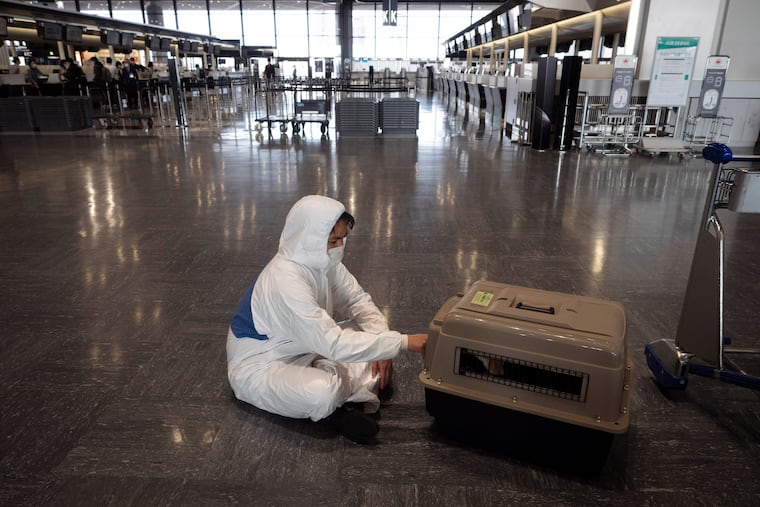A rescue dog came to Pennsylvania from Azerbaijan with a strain of rabies that’s been eradicated here. The CDC cracked the case
A dog imported from Azerbaijan to Pennsylvania had vaccine records and was cleared on arrival - then tested positive for a strain of rabies that's been eradicated in the U.S. since 2007.

A vaccinated rescue dog imported from Azerbaijan to Pennsylvania in 2021 tested positive for a strain of rabies that’s been eradicated here, setting off a contact-tracing mission that ended at an intern’s desk halfway across the globe.
The U.S. Centers for Disease Control and Prevention, which regulates importation requirements for animals, detailed the June 2021 case in its weekly Morbidity and Mortality Report, released Thursday. The agency concluded that vaccination records are not enough to ensure animals are disease-free when they enter the United States.
The dog with rabies was one of 34 rescue animals from Azerbaijan that entered this country through Chicago O’Hare International Airport in 2021. All had vaccination records and were cleared by inspectors at the airport as appearing healthy.
But shortly after one dog — a 5-month-old, 19-pound mixed breed — arrived at its adopter’s home in an unspecified location in Pennsylvania, it began experiencing rabies-like symptoms, including excessive salivation, agitation, and biting at invisible objects.
At the veterinarian’s office, the dog experienced seizure-like symptoms and went into cardiac arrest and was humanely euthanized. The Pennsylvania Department of Health tested the animal, confirmed it had dog-maintained rabies virus variant (DMRVV) — a strain of rabies eliminated in this country in 2007. Test analysis found that the dog had been insufficiently vaccinated against rabies.
After being notified of the rabies case, the CDC launched a contact-tracing effort to find any people who had been in contact with the dog. Researchers found that 15 people — an airport worker, seven people in the dog’s household, three pet-store workers, and four veterinary staff members — had exposure that could have resulted in infection and were recommended for the rabies post-exposure prophylaxis.
Meanwhile, researchers also tracked down the 33 other animals — all dogs except for one cat — that had been sent to California, Florida, Illinois, Michigan, New Jersey, New York, Ohio, and Washington. The CDC worked with health departments in those states to test the animals for rabies antibodies and give them rabies vaccine boosters.
Researchers found that eight of the animals were unvaccinated or insufficiently vaccinated, and were quarantined for four to six months. The remaining 25 with normal test results quarantined at home for 45 days because they had been exposed to the dog that had rabies. All 33 were released from quarantine by the end of December.
All eight of the dogs that hadn’t met vaccine requirements came from the same rescue in Azerbaijan and were vaccinated at the same clinic there. The rescue and clinic reported that a new veterinary intern was responsible for giving rabies vaccines. They found that the intern’s workstation had “numerous rabies vaccine vials with higher than expected residual volume,” meaning used vials still had between 25% and 33% of the vaccine in them.
The CDC concluded that the infection resulted from under-vaccinating the animals.
In July 2021, the CDC temporarily suspended dog importations from countries with a high risk of DMRVV. While in this case, the dog had been vaccinated — but insufficiently — the CDC has seen a “substantial increase” in attempts to import dogs with fraudulent or incomplete rabies vaccine certificates, the agency said. The suspension is still in place.